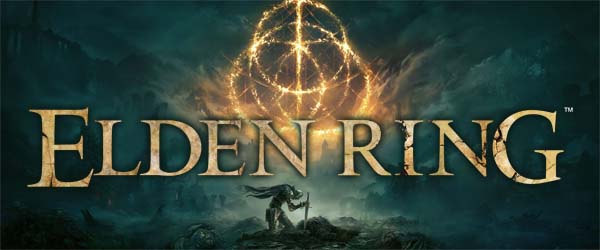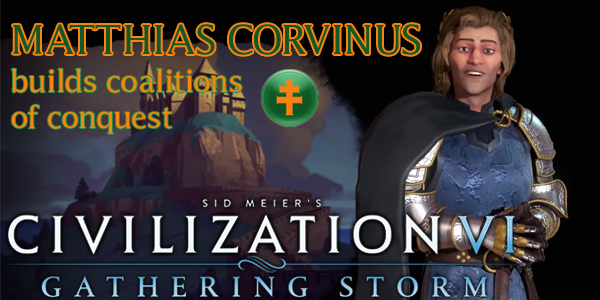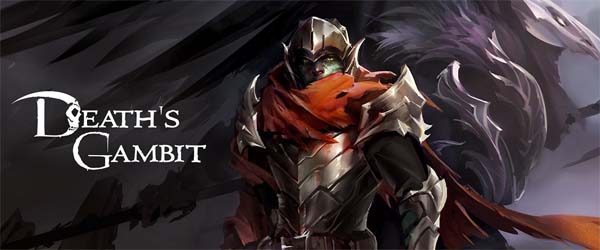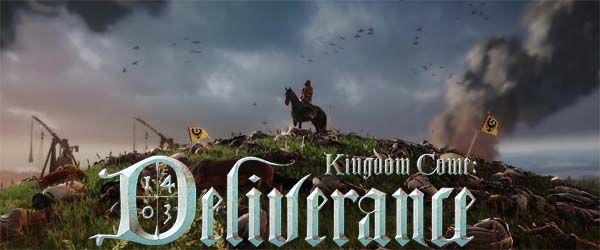
I always considered the first Dark Souls to be an "open world" game in all the ways that matter. The world is interconnected, coherent, and surprisingly functional. Almost every location in the game is walkable from almost any other location, and every distant landmark is an actual place that you can go, which usually has a big, scary monster waiting to show you the "YOU DIED" screen for the thousandth time.
As such, I didn't really expect that a transition to an actual open world would in Elden Ring would really make all that much difference -- either positive or negative. Dark Souls, Bloodborne, and Sekiro already felt open and exploratory despite being a series of linear corridor crawls cleverly interconnected into a tight helix. So I didn't expect Elden Ring to really feel all that much more open or exploratory. Further, all of From Software's games are also designed from the ground-up with a play-at-your-own pace paradigm of story delivery -- in that From's games are more about doling out "lore" in piecemeal rather than about a linear narrative with a clear-cut beginning, middle, and end. So I wasn't terribly worried that a transition to an open world structure would break any narrative flow or the sense of stakes for the character, as it does in so many other open world games.
From Soft's brand of player-driven lore discovery is well-suited to an open world format.
What I didn't expect though, is how the open world would dramatically improve both the accessibility and the challenge of the game.
Elevating the genre
Having transitioned to a more traditional open world design, Elden Ring does suffer from some of the same problems that plague the sub-genre. Assets, enemies, bosses, traps, and so forth are all re-used throughout the map, and many of the dungeons look like they were pulled straight out of Bloodborne's Chalice Dungeon generator. Each region of the map will assuredly have at least one mine tunnel full of upgrade stones. It will have at least one crypt dungeon (usually with a Burial Tree Watchdog boss that looks like a cat statue). It will have at least one set of ruins with a boss waiting in the basement. And they'll all have a minor Erdtree with an Erdtree Avatar (or similar) boss.
That being said, I haven't come across any of these dungeons that feels to me like it was just haphazardly thrown together. Each dungeon has its enemies, traps, and setpieces thoughtfully arranged to test various gameplay skills and the player's power of observation and thoroughness of exploration. Each one also has a unique piece of loot offered as a reward for defeating it -- usually a weapon, talisman, or spirit ash. Unlike, say, Skyrim, which just rewards all of its dungeons with disposable weapon or piece of armor that is level-scaled and arbitrarily magical, each dungeon in Elden Ring rewards a unique item that conveys a piece of lore. Early in the game, almost all of this loot is something that will be useful to most builds, which really helps to encourage the player to continue exploring these mini-dungeons. And later, even if the item isn't useful for a build, it might still reveal valuable lore.
Bosses are frequently re-used, but none of the dungeons feels haphazardly thrown together.
The sheer volume of places to go and things to do might seem overwhelming, but it's also a huge boon to new or struggling players. They have plenty of options for alternative challenges to try, which vary in difficulty. Getting stuck on the main quest path, or in a particularly nasty optional dungeon is easily alleviated by simply wandering off in another direction -- any other direction -- and trying something new that might be a bit easier to conquer, or which might provide loot that is useful in the places where you are struggling. Or you can just wander around the overworld and grind.
A lot of these dungeons can also start to feel tedious and unnecessary. I can go through entire dungeons, beat a boss, and still not have acquired enough runes to gain a single character level. On the one hand, this is frustrating, and some of these dungeons feel like a waste of time for a mid-to-high-level character. On the other hand, the increased desire to hold onto these runes means I'm more inclined to run away from a fight that I'm not equipped to handle, which forces me to engage more with that open world by trying to find another boss or another dungeon that is more my level, rather than continuously bash my head against the same boss wall over and over again.
If you get stuck on a boss, explore somewhere else.
Players are much more free to follow your own path through the game. In fact, From included plenty of opportunities for sequence-breaking for particularly inquisitive and observant players. Dungeons and bosses that seem like a mandatory bottleneck for progress can sometimes be skipped entirely. And honestly, it's not even all that hard to find these bypasses, since they are often out in plain view for anybody who bothers to deviate off the main path at all.
And this process of exploration really does provide a sense of genuine discovery in ways that most other open world games fail to deliver. The full scope of the map is hidden to the player at the start, so reaching the crest of a hill and finding an entire continent that wasn't on your map a moment ago is genuinely surprising and awe-inspiring. The fact that every notable point of interest is not immediately marked by climbing a tower or finding a checkpoint really facilitates a sense of exploration and adventure. It really feels like there's always going to be something new and interesting over every hill, around every corner, and within every dungeon.
[More]

From Software has released its newest, brutally-difficult game, Elden Ring, and it does quite a few things differently from the previous game's in From Software's "Souls-Borne" series. Most notably, Elden Ring has a full open world. That is, an "open world" by the definition that most players would use. Personally, I always thought that Dark Souls and Bloodborne counted as "open worlds" in all the ways that matter, but that's using a very generous personal definition. In any case, this legit open world in Elden Ring does dramatically change the way that Elden Ring is designed, balanced, and paced, and it should also change the way that players approach the game compared to previous titles.
I want to do the same thing that I did with Bloodborne and Sekiro, and provide my own personal tips and tricks for Elden Ring, from the perspective of an experienced, but not elite, player. These tips are geared towards new players coming into Elden Ring fresh, and for other experienced Souls-Borne players who may be having a hard time coming to grips with the new design of the game.
The open world dramatically changes how players should approach the early hours of Elden Ring.
In any case, I hope the following tips help you to get a leg up against the trademark challenge of From Software's Elden Ring. [More]
77f87b87-2035-4c62-b195-ea0f623e39db|0|.0
Tags:Elden Ring, From Software, Namco/Bandai, Limgrave, open world, horse, Torrent, prisoner, magic, parry, counter, summon, spirit, torch

Civilization VI's second expansion, Gathering Storm released earlier this year and has added a handful of new civilizations and leaders. I am hoping to write a strategy for each of them, but I want to start with the civilizations and leaders who are completely new to the franchise. This time, I'll be writing about the last of the truly new civs and leaders: the kingdom of Hungary, lead by the Raven King Matthias Corvinus.
Hungary is a modestly-sized country that lies along the dividing lines between central and eastern Europe, known for its vast geothermal water cave network. It reached its political and military height between the 14th and 15th centuries, when it became a major player in European politics and history. When the Ottomans invaded Europe in the mid-15th century, they set their eyes on securing a valuable border fortress at Belgrade. A noble from Transylvania, named John Hunyadi, levied a mercenary army to defend Belgrade from the Turks and hold back the Ottoman army from successfully gaining a foothold in mainland Europe.

The golden age of the Hungarian Kingdom concluded with the rule of the Raven King Matthias Corvinus, son of John Hunyadi. His election made him the first noble to ascend to the throne without a dynastic background. He was a patron of arts and education, and was seen as a protector of the common folk. His Bibliotheca Corvinian was the second largest library in all of Europe in the 15th century, second only to the Vatican Library. Matthias' mercenary Black Army fought off invasions from the Ottomans (possibly helping to protect all of Europe from Ottoman rule), and also conquered parts of Austria and Bohemia. When Matthias died without an heir, the country fell into decline.
DISCLAIMER:
Civilization VI is still a "living game". Strategies for the game (and for specific leaders and civs) may change as Firaxis applies balance patches, introduces new features, or expands the game through further DLC or expansion packs, or as the Civ community discovers new strategies or exploits. As such, the following strategy guide may change from time to time. I will try to keep it up-to-date, and will make notations whenever changes are made. I'll also post links in the official 2K forums and CivFanatics, where I'll also report any changes made. If possible and practical, I will try to retain the original content of the strategy for posterity.
I welcome any feedback or suggestions that readers wish to offer. Feel free to post on the linked forums, or by posting a comment at the bottom of the page.
This guide is up to date as of the release of the Gathering Storm expansion's "June 2019 update" (ver. 1.0.0.328)
Hungarian cities in Civilization VI do best when founded on snaky rivers and near geothermal fissures. They can be a military force to be reckoned with thanks to a pair of light cavalry unique units and a leader who can use levied city state units to crush his foes.
... [More]
a0bef8e7-e5fc-4a5a-a716-f599f93d6165|2|5.0
Tags:Sid Meier's Civilization, Civilization VI, Civilization VI: Gathering Storm, Hungary, Matthias Corvinus, pearl of the Danube, raven king, thermal bath, huszar, black army, horse, geothermal fissure, river, district, city state, levy

Being that Death's Gambit is produced by Adult Swim, I wasn't sure if it was going to turn into an outright parody of Dark Souls. Was this going to be some kind of comedic satire? Or a serious and thoughtful game? Or just a mindless hack-n-slash with little regard paid to story or narrative. It surely wastes little time before mocking Dark Souls.
-
-
Death's Gambit wastes little time before mocking Dark Souls.
Much of the game's design is blatantly inspired by Dark Souls, except for the title's font, which is evocative of Demon's Souls. From the menus, to the character creation screen, to the main character's armor that looks suspiciously like Artorias of the Abyss' armor, to the death mechanics, you'll see Dark Souls mirrored in almost every element of the Death's Gambit's design. As such, it's very hard to judge Death's Gambit without appealing back to the game(s) that so clearly inspired it.
Music is one strange element of production in which Death's Gambit deviates considerably from its inspiration. The main menu music is reminiscent of old-school RPGs, such as Final Fantasy X, rather than silence, and this trend of not being silent extends to the rest of the game. Instead of a mostly-quiet experience with calming strings in the hub and an intense orchestra for boss battles, Death's Gambit has pretty constant background music as you traverse the world. This makes the music, overall, feel less memorable, as it kind of just disappears into the background. The background music for the Central Sanctuary reminds me of Resident Evil's save room while I'm listening to it, but I can't actually remember what it sounds like once I stop playing.
Lessons from Dark Souls
Death's Gambit is, sadly, plagued by a lot of nagging little problems and lack of polish. Some of them are even issues that have been present in the Souls games, but which have been fixed (or at least addressed) by FromSoft in sequels. In these cases, White Rabbit should have known better. The most egregious of such offenders might be the inability to purchase multiple copies of any given consumable at a time. The Buy screen doesn't tell you how much of a given item you already have, and the Enchant screen doesn't tell you which items are equipped. If you use up all of a given consumable, it's removed from your item bar, and if you buy more, they are not put back into your item bar.
Nagging annoyances include text and foreground decorations obstructing the action.
The game also puts text overlays on the screen, sometimes while enemies are present. You can't read the text while you're focusing on not dying, but the text also gets in the way of the action. It's nice that they make sure that the player sees some of the important lore that you find, but don't do it if you're going to have enemies attack the player at the same time!
To top it all off, a lot of the text is really small and difficult to read, with no option to enlarge it. If you're playing on a console, sitting more than about 8 feet from the TV, you will probably have to lean forward and squint to read most of these menus... [More]
c23844db-143a-4cf1-b9e8-a168d854484a|0|.0
Tags:Death's Gambit, Adult Swim Games, White Rabbit, RPG, death, respawn, resurrection, boss, pheonix, grinding, horse, fast travel, Dark Souls

I tried. I really did. I wanted to give Kingdom Come: Deliverance a chance. I wanted to give it the benefit of the doubt.
I had been passively watching this game for a while, and was looking forward to its release. I didn't realize that it was a Kickstarter project. I thought it was just an independent developer self-publishing a game, like Hellblade: Senua's Sacrifice, which was friggin' awesome! So I didn't contribute towards the Kickstarter. But I did pay $60 for PS4 digital download of the game, and I deeply regret the decision.
If you're gonna charge the same retail price as a polished, publisher-backed game, then I expect the game to show something approaching that level of polish. Kingdom Come is just too wonky and unstable right now. Maybe in six or twelve months I might be able to pick it back up and enjoy it. As of now, however, I consider the game borderline unplayable.
Kingdom Come has ambitions to be Skyrim or The Witcher III, but it lacks the polish.
Scummy saves
The nail in the coffin is the game's restrictive and punitive save system. I'm a fan of diagetic save systems, and this particular save system could probably work really well if the game were just in a more stable and robust condition. I want to emphasize that this worked brilliantly in Resident Evil (and in survival horror in general) because the challenge and difficulty of survival horror came from having to manage a slowly dwindling supply of resources and health. Very few (if any) encounters outside of boss fights were even capable of bringing you from full health to dead, and even the boss fights were clearly telegraphed so that you had plenty of warning to go back, restock your supplies, and save. When to save (and whether or not to overwrite your previous save) became a part of strategy, especially in the case of Resident Evil with its limited,
inventory-space-consuming Ink Ribbons.
Reloading from savior schnapps makes you drunk.
Basically, Kingdom Come only auto-saves at the start of a major new quest. You can trigger a manual save by sleeping or by drinking a special type of rare and expensive alcoholic consumable. If you re-load after using the savior schnapps, the character is also inebriated. This seems, to me, to be an attempt to punish players for save-scumming. It also means that if you get tired or have to step away for whatever reason, and you didn't just complete a quest and are not in a convenient position to save (either lacking access to a bed, unable to risk being drunk when you reload, or simply don't have savior schapps), then you are just screwed.
Until this game gets to a more playable state, this save system needs to be relaxed immensely, or relegated to a "hard core" or "ironman" mode. Because the game is so bad at tutorializing mechanics and at presenting information to the player or warning you that what you're about to try to do won't work, save-scumming is almost necessary just to figure out how basic mechanics work in the limited opportunities that the game gives you to practice them. Tutorials drop walls of text on you without actually giving you an opportunity to practice the thing being tutorialized, so that you aren't given a chance to reinforce the concepts in your mind before the game moves on to something else. [More]
f6ada1a2-c15a-4d71-8aad-bdd16199aefc|1|5.0
Tags:Kingdome Come: Deliverance, Warhorse Studios, Deep Silver, RPG, medieval, Holy Roman Empire, Bovaria, save system, survival, sword, horse, open world
|

| 12 | | | | | | | 60 | | 11 | | | | | | | 55 | | 10 | | | | | | | 50 | | 09 | | | | | | | 45 | | 08 | | | | | | | 40 | | 07 | | | | | | | 35 | | 06 | | | | | | | 30 | | 05 | | | | | | | 25 | | 04 | | | | | | | 20 | | 03 | | | | | | | 15 | | 02 | | | | | | | 10 | | 01 | | | | | | | 05 |
|